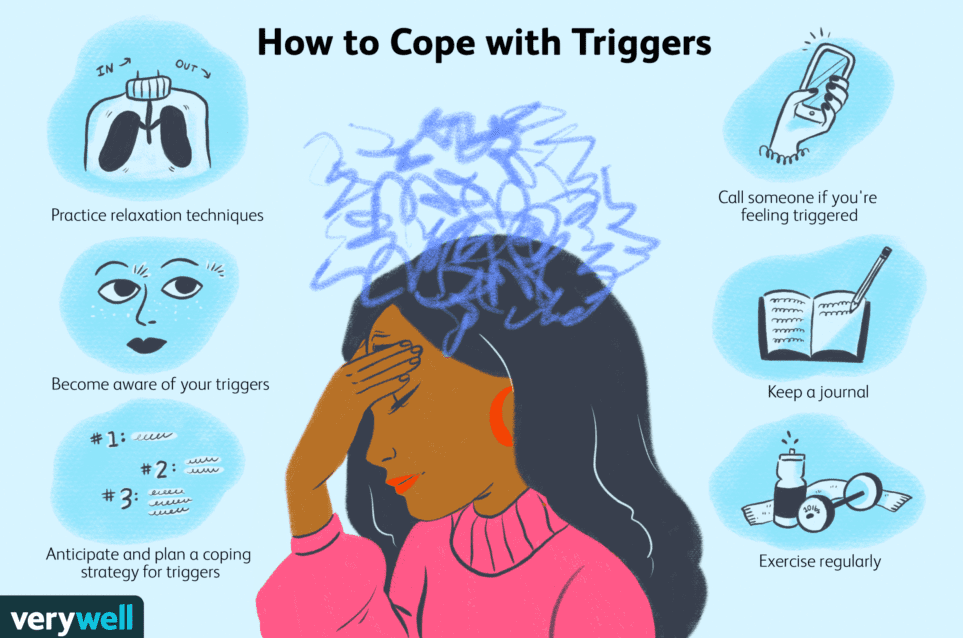I love the Trisha Yearwood song from the early 90’s, The Song Remembers When, in which she sings about hearing a song on the radio. As a therapist now I recognize this as an emotional trigger. Hearing the song stirred a memory of a past relationship and she describes her reaction:
“It was like a lighted match had been tossed into my soul
It was like a dam had broken in my heart”
What is an emotional trigger?
While her experience makes for a good song and walk down memory lane of this old relationship, oftentimes triggers are not good memories – especially true if they come from a trauma history. I hear a lot about triggers from my clients. Typically they are unexpected internal and external prompts that take them back to their trauma. Triggers can disrupt relationships and ruin an otherwise wonderful day. Internal triggers are thoughts and feelings about the trauma itself, as well as thoughts about what the experience says about you. These range from rational to irrational fears and anxiety, anger, feelings of vulnerability and aloneness.
Examples of Triggers – What Causes Them?
Our brains store memories in our senses – something seen, heard, felt, tasted or smelled. As a trauma therapist, my clients have reported being triggered by innumerable things in each of these senses, such as:
- Sight –
- seeing a car like the one driven by their abuser or
- someone in class who looks like that person.
- Smell –
- a whiff of a cologne or cigarette smoke
- something unique to the perpetrator’s occupation such as motor oil or grease on a car mechanic.
- Taste –
- food bought or served by an abuser, often in the grooming process or as a “reward”
- a particular fast food or candy
- Sound –
- music or a show that played during the abuse
- duct tape being unrolled
- Touch –
- being restrained or held down
- any unexpected touch.
Some triggers occur around the anniversary of an event or holiday, and others occur when hearing of similar experiences such as on the news, in a class, or even watching it in a movie. I work with my clients to explore the physical responses, such as feelings of panic, racing heartbeat, hypervigilance, and muscle tension, as well as what happens when they occur: What is happening in the situation? What are you thinking? Feeling? What is happening in your body? In our sessions, I work with clients to develop coping strategies to self soothe when emotional triggers happen (because they will), and then challenging and correcting the distorted thoughts and processing the trauma itself. Doing this work helps to create calm out of chaos, leading to greater self-awareness, and managing the impact of things that we cannot control.
Carla D. O’Hara, MA, LPC


